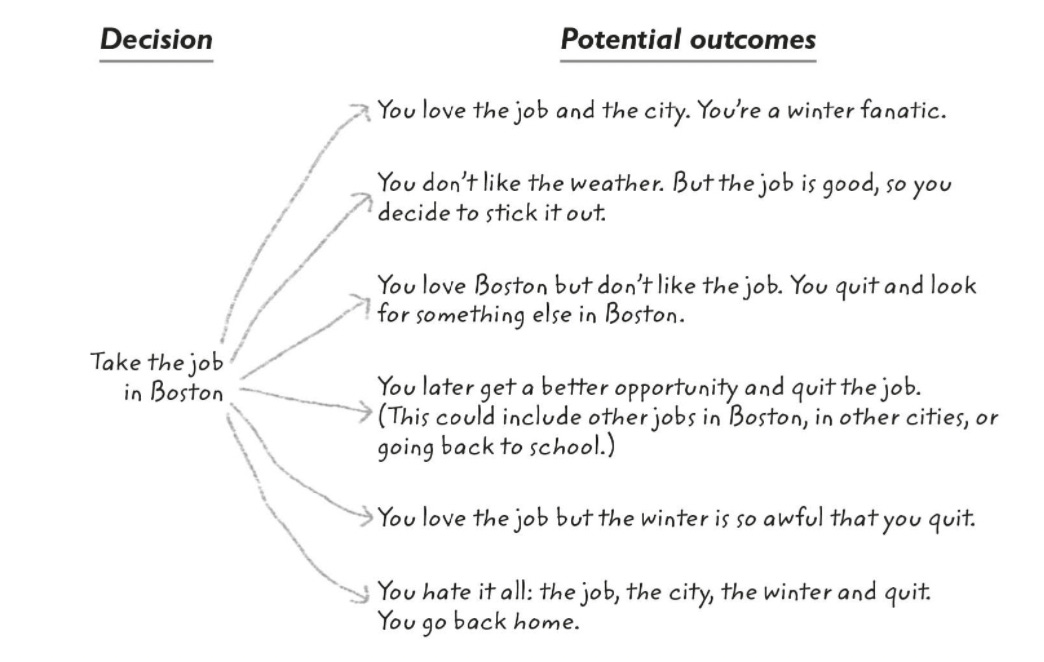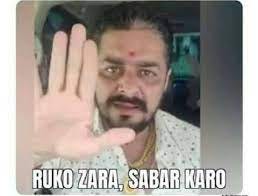Decision Making Hacks!
How to improve the quality of decisions in your life? Based on the Book- How to Decide by Annie Duke.
There are only two things that determine how your life turns out: luck and the quality of your decisions. You have control over only one of those two things.
Whether you realize it or not, there is a war going on. The war is between luck and decision. The outcome of the war will determine how your life goes. If you allow yourself to be controlled by chance, you might end up with a life that you don't like. Taking control is not the answer either. That is just as ineffective. You need to make better decisions. But how?
It’s time to move beyond the most widely accepted form of decision making (also the most novice)- “Ultimately, I trust my gut”.
The outcome of any decision and the decision process are two completely different things. Eg-
Imagine you quit your job to take a position at a new company. The job turns out great! You love your coworkers, feel fulfilled in your position, and within a year you get a promotion. Was it a good decision to quit your job and take the new position?
YES
NO
Even though you don’t have any detail about the decision process, when I tell you how things turned out, it feels like you really know something about whether the decision was good or bad. You can spot this phenomenon across all sorts of domains. You buy a stock. It quadruples in price. It feels like a great decision. You buy a stock. It goes to zero. It feels like a terrible decision.
We can think about the relationship between decision quality and outcome quality like this:
An Earned Reward comes when you make a good-quality decision that results in a good outcome, like when you proceed through a green light and get through the intersection safely.
Dumb Luck comes when you make a poor-quality decision that turns out well. You can be waiting at a traffic light and fail to notice the light has turned green because you are deeply entranced by the world’s most important tweet. If, while you are sitting there failing to proceed through the intersection, you happen to avoid getting in an accident with a car whose driver ignores the red light in their direction and barrels through the intersection, that doesn’t make looking at Twitter while driving a good decision. That’s just Dumb Luck.
Bad Luck comes when you make a good-quality decision that turns out poorly. You can proceed through a green light and get in an accident with someone turning into traffic. That’s a bad outcome, but it wasn’t because your decision to follow the traffic laws was poor.
Just Deserts means making a poor-quality decision that results in a bad outcome, like running a red light and getting in an accident.
Hindsight Bias
When you make a decision, there is stuff you know and stuff you don’t know. Eg- You like someone, your friends warn you that “she is not your type”. You proceed nonetheless and propose, everything is going well. Life is good, one day you receive a text saying that “We need to talk”.
After the fact, once you know the thing that actually happened, you can feel like you should have known it or did know it all along. The actual outcome casts a shadow over your ability to remember what you knew at the time of the decision.
Do you know what’s worse than spending your life with the regret of thinking you should have known? Having that regret plus having everyone else telling you “I told you so.” That’s Hindsight Bias for you!
Solution:-
You’ll be less likely to make future decisions based on a faulty sense of what you knew or should have known. It will also help you beat up yourself (or others) less.
Tracking your knowledge creates the time stamp that can get lost in the warp of hindsight bias.
Hindsight bias distorts the way you process outcomes in two ways: Should have known and Knew it all along.
Decision Tree
When you are making a decision, you see the future possibilities like the branches of a tree, each branch representing some way things could unfold.
Here is an example from the book. So consider a decision that you have to take up a new job in a new city. Explore the range of possibilities that could happen and branch it out in the decision tree. (most desirable at the top and in the order of preference)
Now, let’s take a step ahead without getting ahead of ourselves. Once you have identified the set of possibilities, attach the likelihood of that outcome in your decision-making process-
Now when we have a clear idea about the set of potential outcomes and what is the likelihood of that stuff happening. It’s time to insert numbers into the picture. Probabilities to be more Specific. (via new example)
As you guys can see, this process makes the whole “Go with the Gut” thinking feels orthodox.
Just try to give it a go, you will see how much these simple steps can help you turn your decision making quality inside out.
I hope you enjoyed my article about the nature of luck and decision-making. With this knowledge, I hope you can make the best possible decisions for your life, and that you can learn to be lucky. So what are you waiting for? Make the best choices you can make everyday, and good luck will follow.
Stay Tuned for further insights on this topic. Until Next Time!












Clear as crystal! Great read!
Love this article. Thanks.